Landscapers is an absolute gift for jaded fans of true crime stories
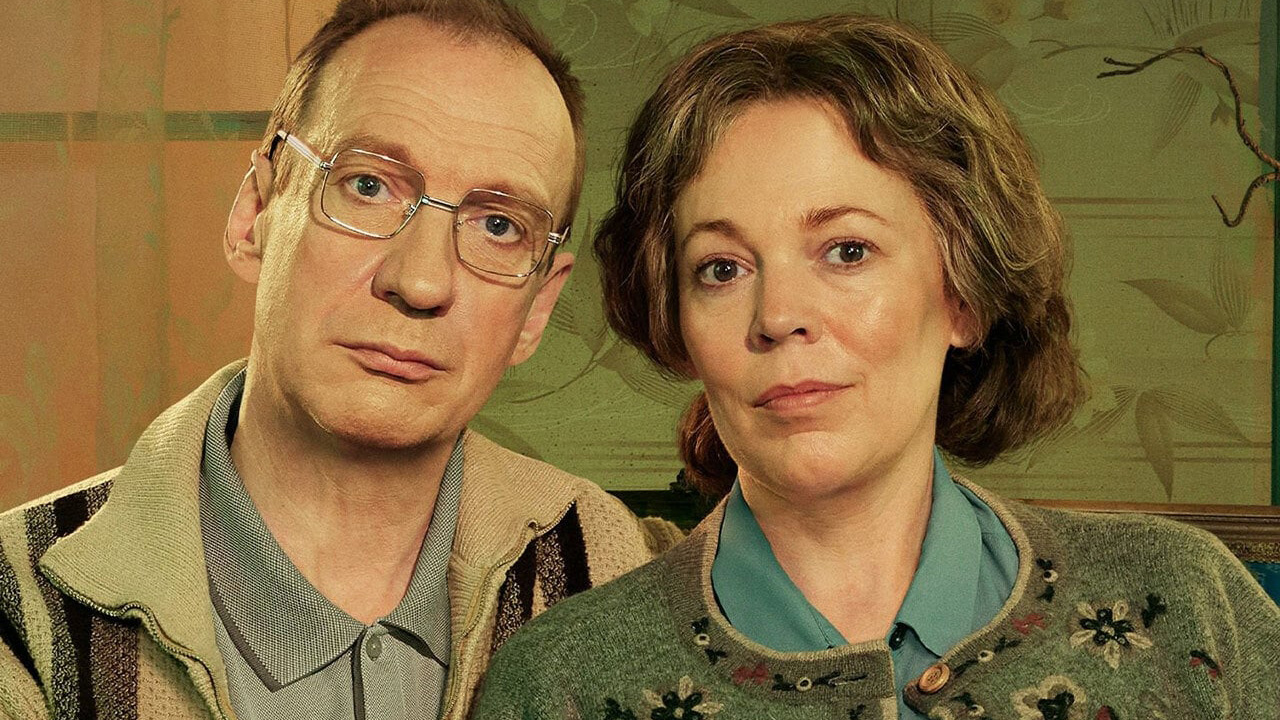
The past decade has seen a massive explosion in the genre of true crime. Thanks to the success of shows like The Jinx and Making a Murderer, and podcasts like Serial and My Favourite Murder, it’s grown from a fairly niche concern to a totally ubiquitous part of the media landscape.
Of course, this proliferation of true crime series has led to a calcification of tropes, a kind of flattening of the things that make the best true crime so grotesquely riveting. For the world’s jaded true crime fans then, Landscapers, HBO and Sky Studios’ new dark comedy series intent on questioning the very core conceptions of the genre, feels like an absolute gift.
Landscapers tells the “true” story of Susan and Christopher Edwards (played by veterans Olivia Colman and David Thewlis). In 2014, they were convicted of the murders of Susan’s parents, William and Patricia Wycherley. When we meet the couple, they’re on the run from their past, trying to make a life for themselves in France.
Susan is obsessed with old movies, and sees Christopher as her very own Gary Cooper cowboy, protecting her from the dangers of the wild world. Christopher seems to have some kind of correspondence going with French actor Gérard Depardieu.
Outside of this, they’re both extremely normal. Achingly normal. The kind of people you might not look at once, let alone twice. But when Christopher makes a rash call to his step-mother admitting he’s done something “very silly”, the couple find themselves at the centre of a criminal investigation, and a media frenzy.
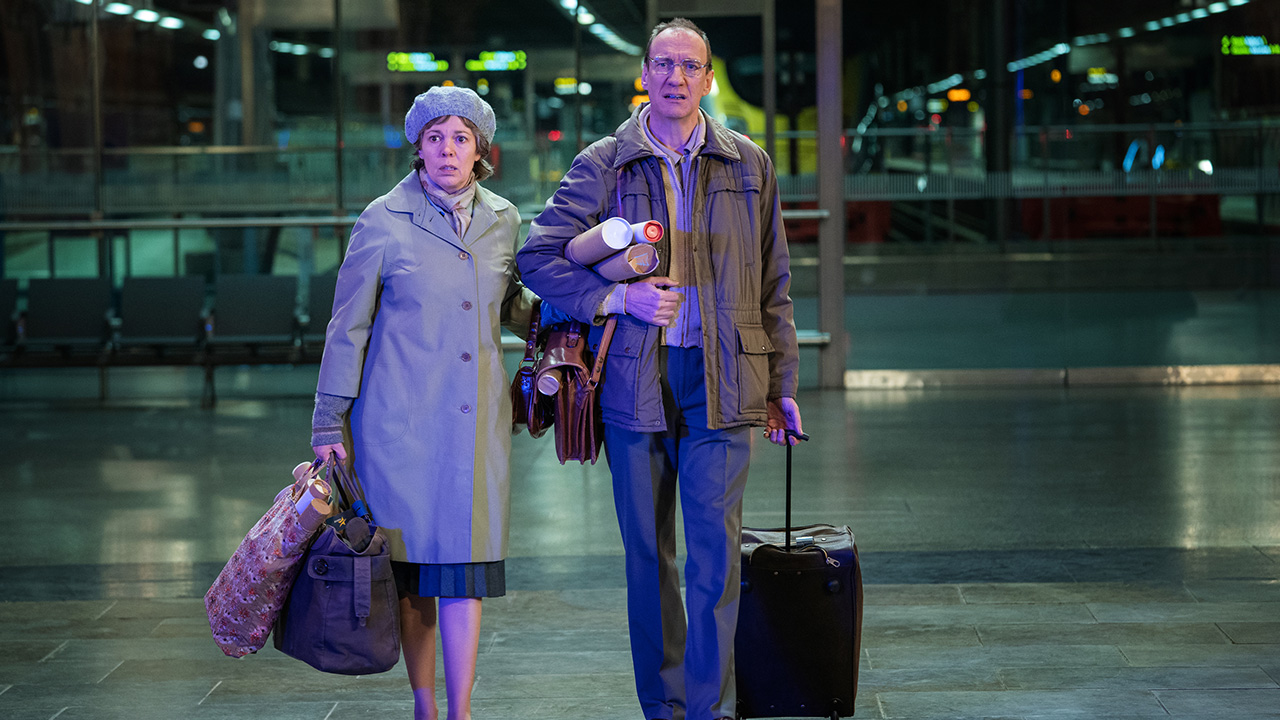
The central concern of Landscapers is revealed once the police begin their interrogation of the Edwardses. As we’re led between the stark interrogation room and surreal filmic reconstructions of Susan and Christopher’s accounts of the murders, it becomes clear that the real interrogation going on is an interrogation of the nature of the “truth” that lies at the centre of “true crime”. While it’s a familiar enough trope to explore conflicting accounts or unsolved mysteries, Landscapers is pointed in its examination of how the very idea of crime itself requires a particular kind of narrative construction.
Through a clever juxtaposition of different framing, different versions of events, and even the insertion of real-world media coverage, we’re left questioning not just the events of these murders but the nature of storytelling and truth itself. By the end of the series, we’re led to unpack the ways in which even our lead characters are subjective, unreal constructions. Not just to the court, the media, or the police, but to each other.
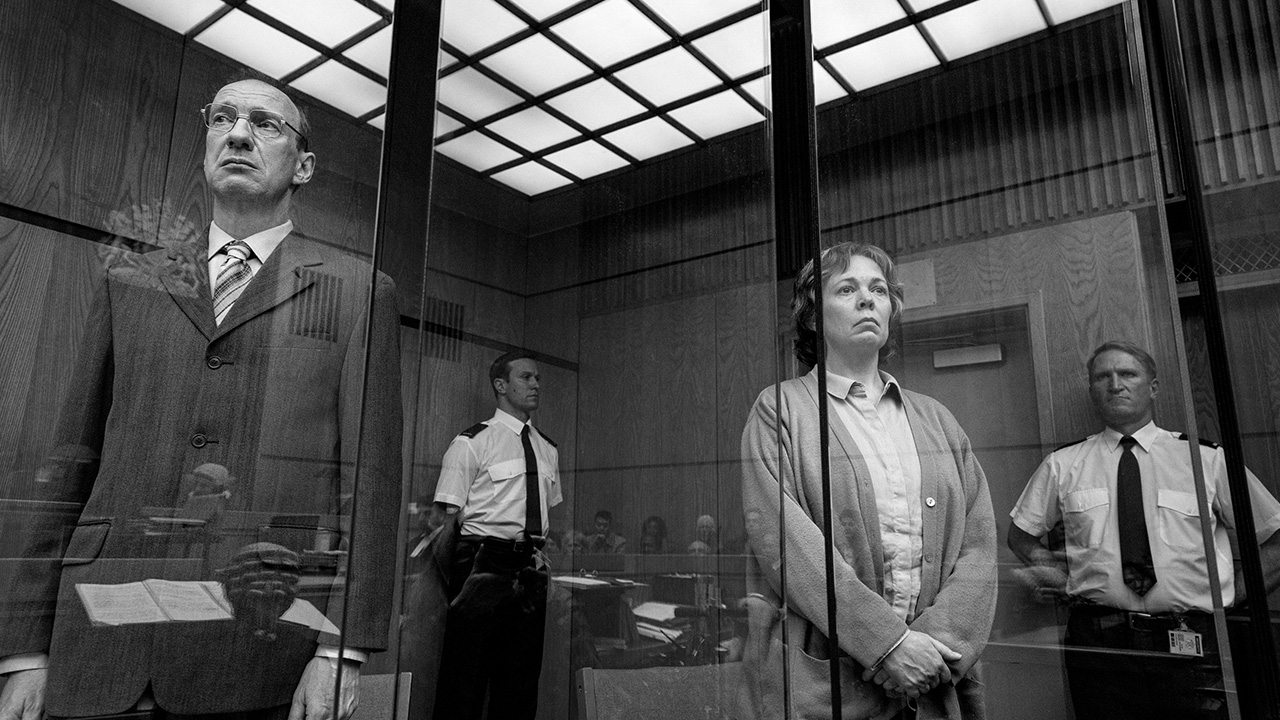
Writer/creator Ed Sinclair and writer/director Will Sharpe (who worked on UK black comedy Flowers, also with Colman) are clearly having a lot of fun, slipping fluidly between black comedy, heartbreaking drama, cinematic pastiche and fourth-wall breaking meta-narrative. With cinematographer Erik Wilson (Paddington, Paddington 2, Submarine), they’ve created a fascinating visual style which manages to flirt with a range of divergent references (50s Hollywood, 90s TV movie, artsy minimalism, just to start) while still feeling totally cohesive.
Part of this just comes down to sheer confidence, with the opening shot of the series transitioning from black and white to colour, all to the sound of the director cueing the rain and calling action. A caption on the screen reads “This is a true story”, and as a train passes, the word “true” fades away. While this kind of meta film-making does seem to be particularly in vogue right now, it’s seldom used with such clear conceptual thrust.
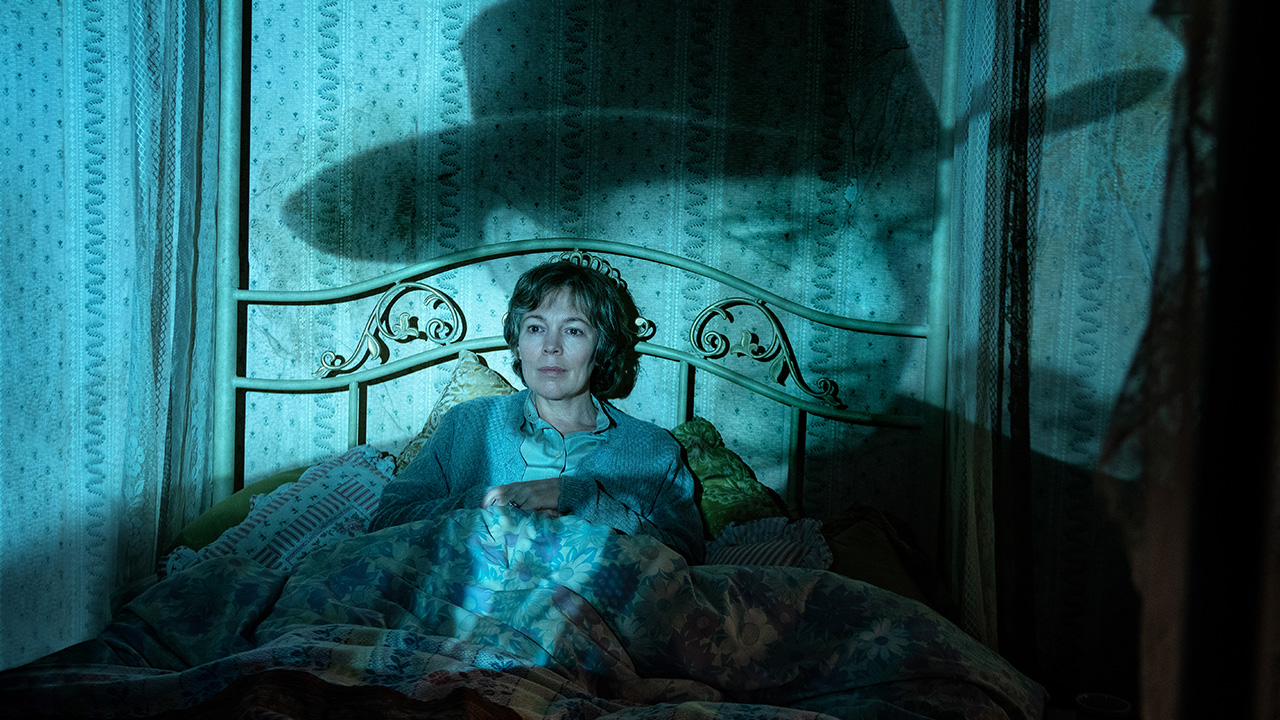
Olivia Colman and David Thewlis are completely compelling in the central roles. Colman draws on her comedy roots to add a touch of the ridiculous and the melodramatic to lines like “I’d eat a croissant out of the bin for you”. It’s a testament to her much-awarded talent that she manages to blend these moments so seamlessly with scenes of real pathos and despair. Thewlis is almost unrecognisable as the downtrodden and struggling Christopher Edwards, bringing a tragic and dishevelled charm to the scenes where he plays Susan’s cowboy hero.
So much more than just a crime story, Landscapers is about the co-dependent and fantasy-drenched relationship between Christopher and Susan. Buoyed by Arthur Sharpe’s tremendous Morricone-evoking score, there’s more than enough chemistry between Colman and Thewlis to sell them as romantic co-conspirators.
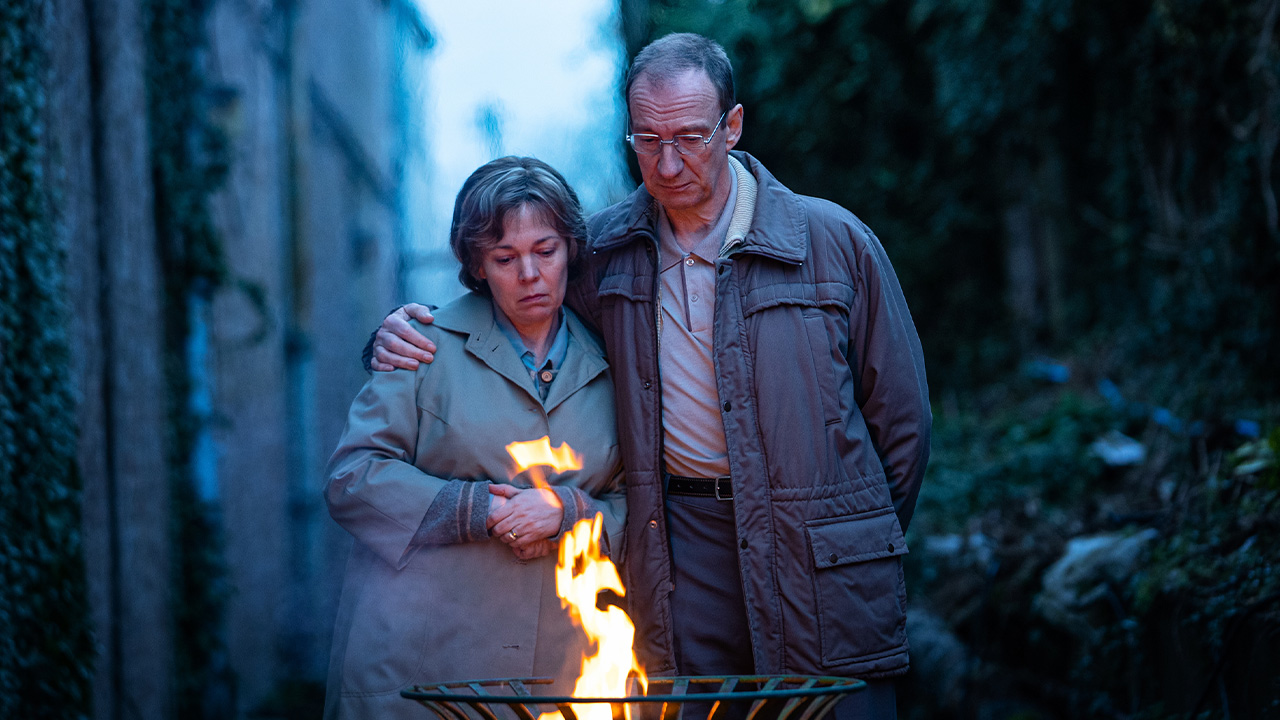
From Aaron Neil’s (Paddington 2) brief appearance as the Wycherleys’ nosy neighbour, to Kathryn Hunter’s (The Tragedy of Macbeth) turn as Christopher Edwards’ snooty and proper step-mother, the supporting performances are uniformly fantastic. Particular stand-outs are Kate O’Flynn as DC Emma Lancing and Dipo Ola as Susan Edwards’ lawyer Douglas Hylton. Through O’Flynn and Ola, these stock crime-drama characters of the defence lawyer and the investigating officer are given depth, motivation, and nuance, serving as fascinating foils for Susan’s character, working to further complicate the knotty tangle of truth, story, and motivation.
Those looking for the seedy thrills of true crime or the slow satisfaction of a procedural drama might be a little disappointed by Landscapers‘ unorthodox approach, but anybody interested in storytelling, crime media, or just bold creative filmmaking will find a lot to sink their teeth into here.
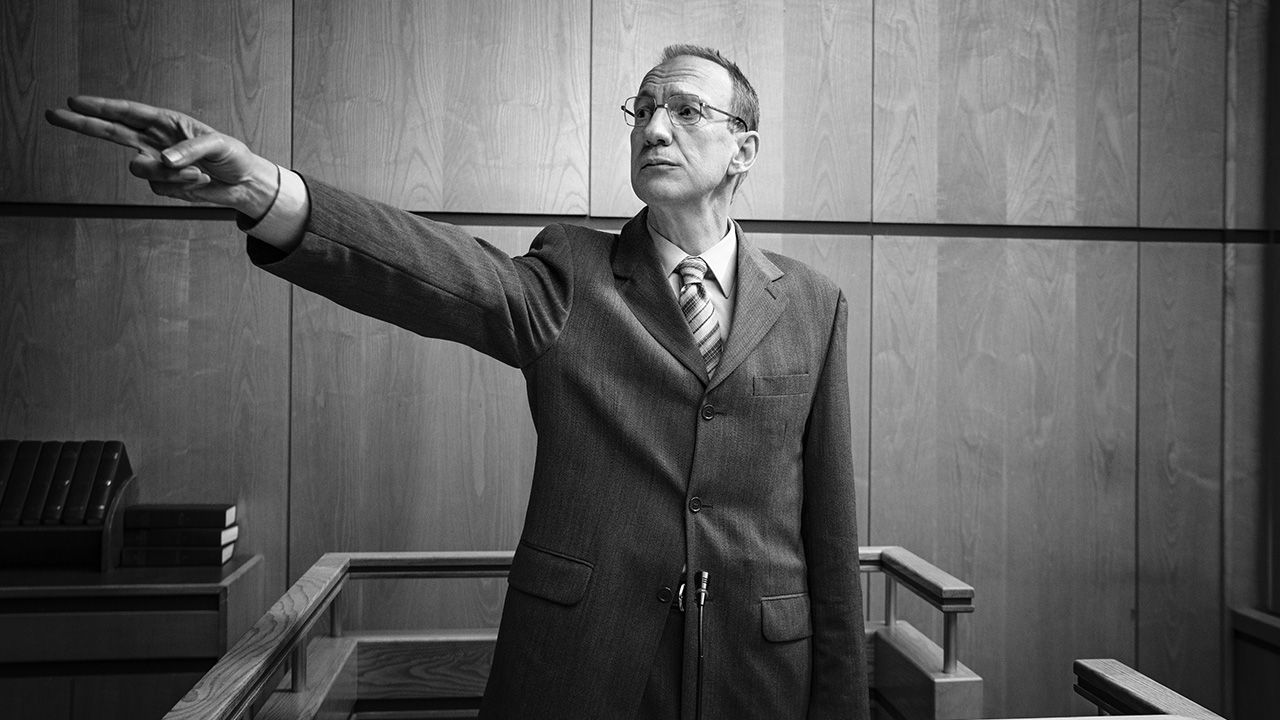
Watching through its short, four-episode run, it’s striking how layered and deliberate Landscapers feels, with foreshadowing, double meaning, and winking references to classic films all tied together in its world of strange looping self-reference. Perhaps in the case of Susan and Christopher Edwards murdering William and Patricia Wycherley there is no real and uninterpreted truth we can get to now, more than two decades on.
Perhaps Landscapers isn’t concealing deeper secrets or cryptic clues beneath its compelling artful blend of silver screen fantasy and true crime unreality. But it’s tempting to watch it a second time to find out.


















